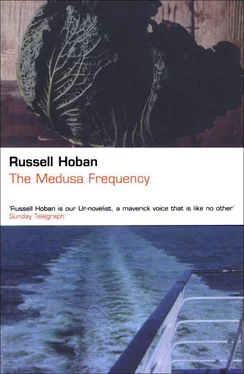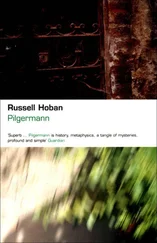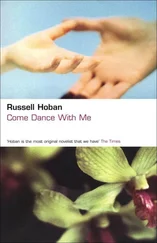‘Wide Justice,’ said the head.
‘What do you mean, “Wide Justice”?’
‘That’s what the Greek name Eurydike means.’
‘I can handle Wide Justice; it’s the forty-foot ketch that gets up my nose. I can see the husband all bearded and fearless at the helm, his name is Lars. The boat’s name is Eurydike.’
‘Bastard.’
‘Indeed. I travelled over land and sea to find the Vermeer girl and what did I get for my trouble? Bearded Larses and forty-foot ketches and Gösta Kraken.’
‘Who’s Gösta Kraken?’
‘He’s one of the Luise old boys. He did a film called Codename Orpheus.’
‘Ponce. Who’s the Vermeer girl?’
I told the head about the Vermeer girl.
‘She’s another Eurydice,’ said the head.
‘What else is new?’
‘You can’t go looking for Eurydice.’
‘Look who’s talking.’
‘My perceptions and my understanding change from moment to moment,’ said the head. ‘What I mean is that you don’t find Eurydice by looking for her.’
‘I found the Vermeer girl gone,’ I said. ‘I found a dark wood, I found the Island Tamaraca, I found Medusa. And I found Luise definitively gone. Standing before me and gone for ever.’
‘You found Medusa?’
‘Shimmering and luminous above the pinky dawn water.’
‘I never found Medusa,’ said the head.
‘Were you looking for her?’
‘Every man is, I know that now. Do you know what the idea of her is?’
‘No.’
‘Behind Medusa lie wisdom and the dark womb hidden like a secret cave behind a waterfall. Behind Medusa lies Eurydice unlost.’
‘Let it be, you’re wording it to death.’
‘Perhaps you don’t need me any more,’ said the head, as my arms began to feel leaden. ‘Don’t be offended, please, we still have the story to finish.’
‘I wonder if I can sing now.’
‘Please don’t. When you tried to sing that first morning by the river the silence was awful, I don’t want to hear it again.’
‘Don’t be so delicate. As long as I have any kind of being I have to keep trying.’
‘Surely there’s a time for singing and a time for silence.’
‘My business is singing, not discretion. Be quiet and listen. What time of day is it now?’
‘Afternoon. Hang on, if you’re going to sing I might as well record it this time.’ I put the head on my desk and plugged a microphone into the tape deck.
‘I’ll sing an evening song,’ said the head. Just as the mouth opened an aeroplane passed overhead. The lips and tongue moved but again I heard nothing. I touched the head but wasn’t sure whether I felt any vibration or not. After the plane had gone the mouth continued to move in silence for quite a long time, then it closed. There was a little pause, then the head said, ‘Well?’
‘I didn’t hear anything, although it’s hard to be sure, there was so much noise from the aeroplane.’
There was a boy’s face at the window. His hand appeared, pointing at the head of Orpheus on my desk. I went to the front door and found two boys on the steps. ‘Can we have our football back?’ said the first one. ‘We didn’t mean to kick it at your door.’
‘I haven’t got your football.’
‘Yes you have. You picked it up and took it inside and it’s on your desk now. We’ve been ringing your bell for a long time.’
‘The bell’s disconnected.’
‘We’ve been knocking as well,’ said the second boy.
‘I never heard it.’
‘Well, anyhow, give us back our ball,’ said the first boy.
‘What did your ball cost you?’
The first boy looked at the second boy. ‘Ten quid.’
‘There’s a sports shop in the Broadway near the bus stop; you can buy another ball there, OK?’ I gave him ten pounds and both boys disappeared.
‘Where were we?’ I said to the head.
‘I’ve sung for you twice,’ it said, ‘and both times you’ve said you haven’t heard me.’
‘This time the microphone was listening too; let’s see whether it heard anything.’ I rewound the tape, put on headphones, and played it back. It was surprising at first to hear the head speaking in my voice but there was of course nothing extraordinary in it; if it could use a football for manifesting itself there was no reason why it shouldn’t use my voice to speak with. When it said on the tape that it was going to sing I turned up the volume and watched the level meters. There went the aeroplane. The cooling fan of the Apple II was audible, and above it there was a faint high-pitched humming that went up and down in a halting and uncertain tune that was just loud enough to move the luminous bars on the level meters a stroke or two past the –20 decibel mark. Faint and distant it struggled to reach me like some broken melody coming round the ionosphere through the storms and surges of the shortwave night to my lost outpost in Fulham. It was of course my own voice but I hadn’t remembered humming at the time; it sounded as if I might have been trying to follow something that I was straining to hear.
‘Well?’ said the head. ‘Can you hear yourself hearing me?’
‘Yes, but why can’t I hear your voice, the voice of Orpheus singing?’
‘Let’s be realistic; I’m a hallucination.’
‘Right, that’s why the tape recorder hears only my voice. But if I hallucinate an Orpheus voice when you talk to me why can’t I do it when you sing?’
‘Maybe I’m not real enough to you.’
‘Maybe nothing is. Maybe the third novel isn’t real enough to me, maybe Luise wasn’t real enough to me.’
‘Maybe you yourself aren’t real enough to you.’
‘How does the world-child do it? How does the world-child hold the world together and keep it real?’
‘The world-child has been told that this is a world,’ said the head, ‘and it believes it; it is the energy of this belief that binds the world together. The world-child holds in its mind the idea of every single thing: root and stone, tree and mountain, river and ocean and every living thing. The world-child holds in its mind the idea of woman and man, the idea of love.’
‘Who told the world-child all this that it now believes?’
‘Each thing told itself to the world-child: the tree; the mountain; the ocean; the woman; the man. You and I, we have told ourselves to it.’
‘And the idea of love? Who told that to the world-child?’
‘It didn’t have to be told,’ said the head. ‘This idea arises of itself from that energy of belief that keeps the mountains from exploding and the seas from going up in steam. It’s only a kind of cohesion that binds together possibilities that have spun together out of the blackness.’
‘Like you and Eurydice.’
‘It didn’t hold us together long.’
‘Why not?’
‘Even the beginning wasn’t very auspicious, was it,’ said the head. ‘The first I ever heard of Eurydice was the sound of her weeping.’
‘That was because she dreamed she was the world-child and she was afraid; that was nothing to do with you.’
‘Yes, it was,’ said the head. ‘She was weeping because she knew that the world-child is always betrayed.’
‘And that was in your song?’
‘Of course it was; it was in the strange and many colours of the death of love.’
‘Her weeping came before your singing,’ I said. ‘Maybe those strange and many colours in your song came from the weeping that started you singing.’
‘Obviously.’
‘What’s so obvious about it?’
‘Don’t you understand?’ said the head. ‘There’s only one.’
‘Only one what?’
‘Only one femaleness, whether it’s called Eurydice or Medusa or Persephone or Luise. As Eurydice/Persephone she opened underworld for me, the world under the world, the moment under the moment. And from underworld came my song of love’s beginning and the betraying of the world-child and the death of love that made her weep.’
Читать дальше












